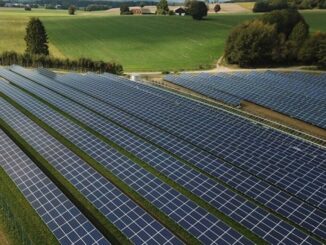
With its nation-leading renewables fleet and oil and gas industry, Texas is poised to dominate what boosters hope will be America’s next great energy boom: a push to tap the heat of the subterranean earth for electricity and industry.
That technology, known as geothermal energy, has demonstrated the rare ability to unite the state’s warring political camps — and is fueling a boom in startups that seek to take it national.
While other forms of renewable energy lost ground during Texas’s 2021 and 2023 legislative sessions before a legislature that combined a hard-right political bent with a focus on building more “dispatchable” power, the geothermal industry advanced. State lawmakers passed four key bills in 2023 that helped lay the foundation for a new generation of drilling — with just one vote against.
In the 2023 session, “we didn’t get put into the renewable bucket, we didn’t really get put into the oil and gas bucket,” said Barry Smitherman, former Republican head of the state Railroad Commission and head of the Texas Geothermal Energy Alliance.
Instead, “we became this hybrid that was acceptable to people on both sides of the aisle”
The regulatory clarity established by those bills has laid the groundwork for a new generation of startups powered by the state’s urgent need for reliable electricity in the face of increasingly extreme weather, as well as a growing trickle of oil and gas veterans leaving an industry they see as plagued by boom-and-bust cycles. As of last year, Texas had 11 of the 27 total geothermal startups in the US.
On Wednesday, startup Bedrock Energy unveiled a new geothermal-powered heating and cooling system at a commercial real estate complex in Austin. Earlier this month, next-generation drilling company Quaise — which uses high powered radio waves to drill through hard rock — filed a permit with the state energy regulator to begin field testing its drills, years ahead of what industry insiders had thought was possible. Houston-based Fervo is building a 400-megawatt project in Utah. Military bases across the state are looking into geothermal as a potential source of secure electricity in an era of price spikes and cyberattacks.
And later this year, Sage Geosystems, a company founded by three former Shell executives, will begin using a fracked well as a means of storing renewable energy — which CEO Cindy Taff said will get the company most of the way towards the ultimate goal of commercially viable geothermal electricity.
The rise in geothermal startups comes alongside a broader surge in Texas renewable energy. Last month, solar generation eclipsed coal both in terms of power generation and market share. Texas also has more utility-scale wind and solar capacity than any other state, though it lags California when it comes to rooftop solar.
The Sage project shows the conceptual benefits of geothermal energy to the Texas grid, which increasingly runs on wind and solar energy. When the sun is high, the wind is blowing and demand is low, Sage will pump water into subterranean wells, creating zones of high pressure that utilities can tap as “batteries” when other energy supplies fall.
Though it lags California in total capacity, Texas is set to add the most utility scale batteries in the country in 2024, but these can only store power for two to six hours — creating a niche for projects like Sage, which aim to store power for up to a day.
In building out its projects, Sage benefited from that nearly-unanimous package of legislative reforms passed by the during the notably acrimonious 2023 session, which opened the way to operators like Taff — and offered a potential roadmap to other oil and gas states looking to set up geothermal industries of their own.
In its campaign for those pivotal laws, the geothermal lobby benefited from a recent traumatic experience for Texas: the brutal, deadly and staggeringly expensive legacy of 2021’s Winter Storm Uri.
In addition to resulting in hundreds of deaths from freezing temperatures and carbon monoxide poisoning from generators, the storm left tens of millions across the state without power for nearly a week and caused electricity prices in Texas’s spot markets to soar to an unheard-of $9,000 per megawatt hour — costing ratepayers an estimated $17 billion in overcharges, a court ruled in 2023.



